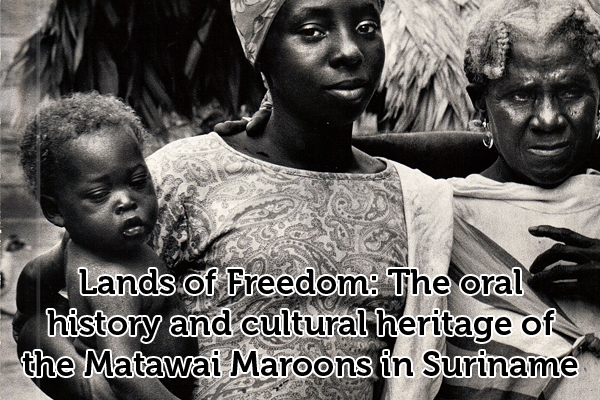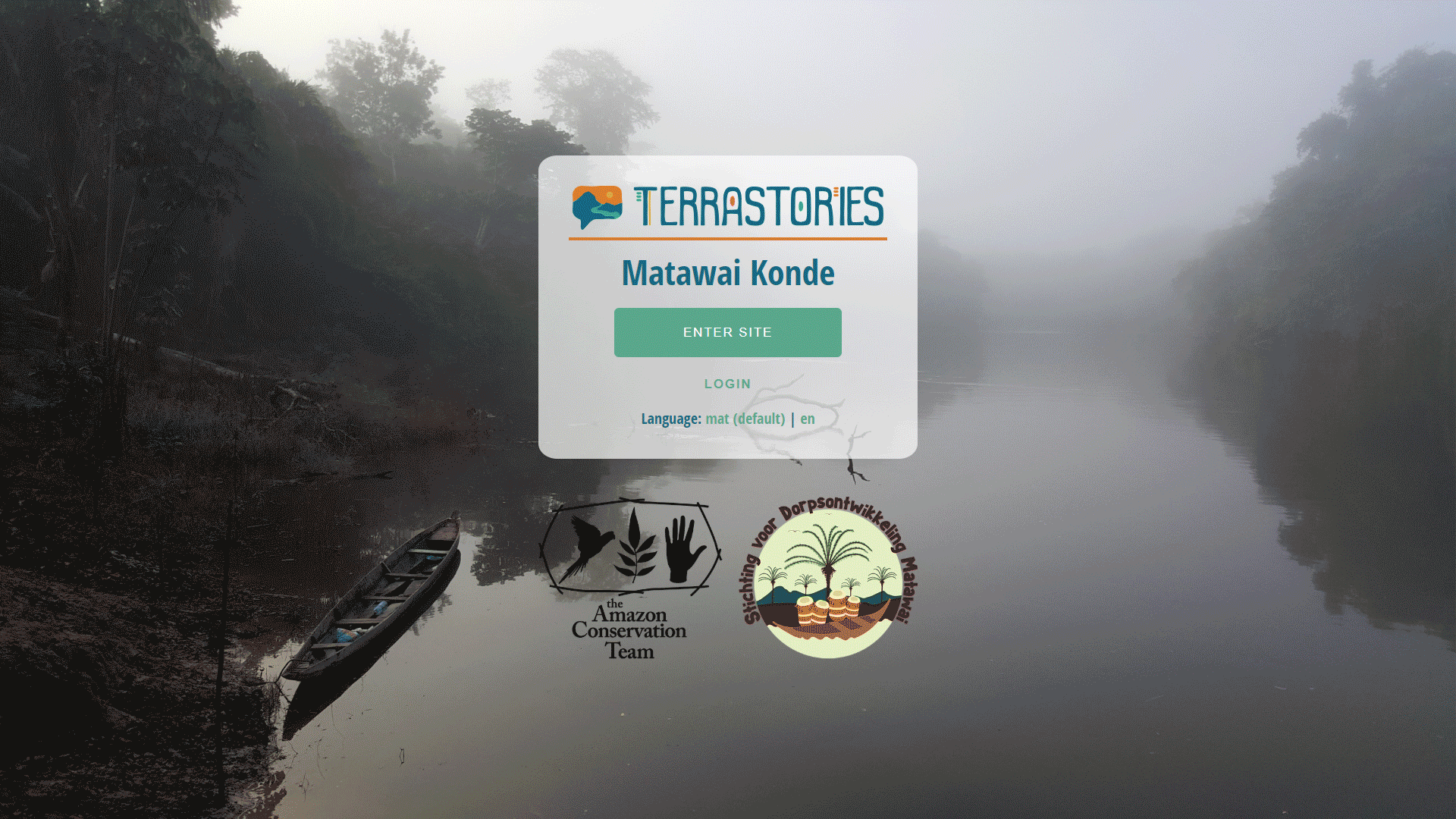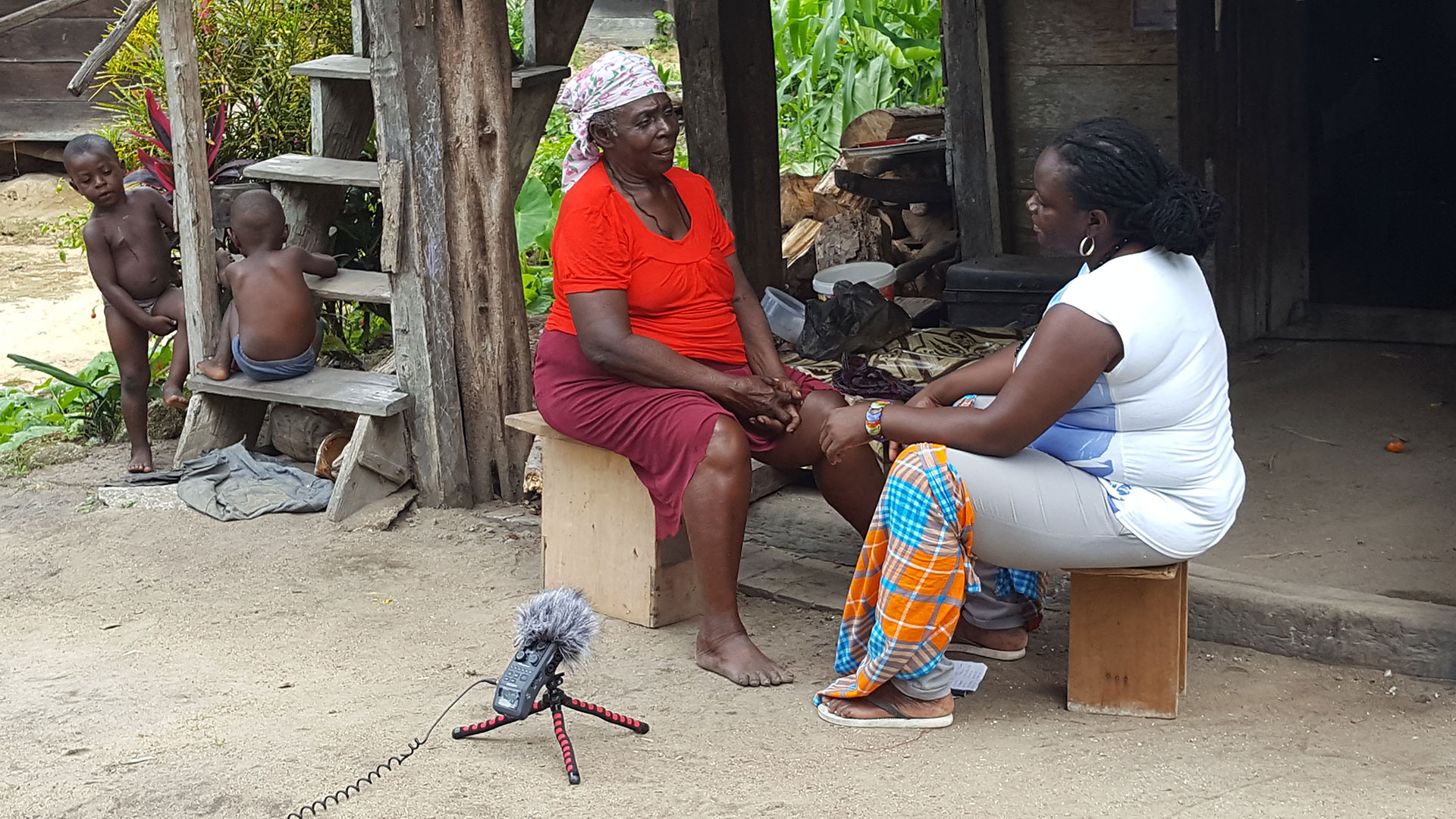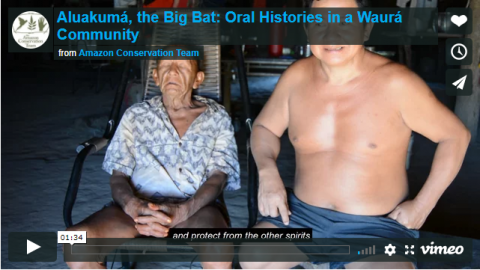Posts Tagged ‘oral histories’
Lands of Freedom: Preserving and Honoring the Heritage of the Matawai
The Matawai Maroons of Suriname—descendants of enslaved Africans who fled into the rainforest over 300 ago, where they have remained ever since— in partnership with ACT, are launching a new interactive Storytelling Map showcasing their centuries-old oral histories about their ancestral lands and culture.
Read MoreOral Histories: Helping the Kogui Manage their Territory
Two of ACT’s objectives in our work at Jaba Tañiwashkaka, a coastal sacred site of the indigenous peoples of Colombia’s Sierra Nevada de Santa Marta region, are to increase the territorial management capacity of indigenous leadership and to establish conservation agreements between the local indigenous and non-indigenous communities. In contexts like the Sierra Nevada de…
Read MoreLand and history among the Matawai of Suriname
Along the Saramacca River in central Suriname live the Matawai people. They are descendants of Africans who escaped slavery in the 17th and 18th centuries by fleeing into the jungles and fighting for their freedom. In the rainforest, the survival of the Matawai has always depended on an intimate knowledge of their territories. Place-based stories…
Read MoreStorytelling empowers indigenous people to conserve their environments
Indigenous storytelling is a powerful tool for preserving biocultural diversity, says Álvaro Fernández-Llamazares, an environmental researcher at the University of Helsinki in Finland. Having heard stories in Bolivia, Costa Rica, Kenya and Madagascar, he has now proposed that storytelling could transform how conservationists work with native peoples. The Amazon Conservation Team (ACT) embodies this philosophy. ACT partners with South American indigenous communities to preserve rainforests and traditional culture.
Read MoreAluakumá, the Big Bat: Oral Histories in a Waurá Community
Oral Histories in a Waurá Community: In the village of Ulupuene, which partners with ACT, two elders and community leaders passed away: the regional “keeper of songs and dances,” Yakuana, who took with him a vast wealth of knowledge about Waurá cultural practices; and most recently, Aluakumá (“Big Bat”), a village elder, shaman, and healer. Both men were revered, and their kin expressed that they had lost more than just a loved one—they had lost an unrecoverable repository of cultural knowledge.
Read More





